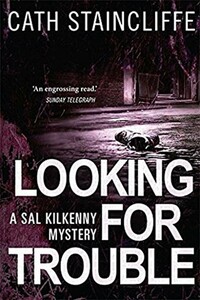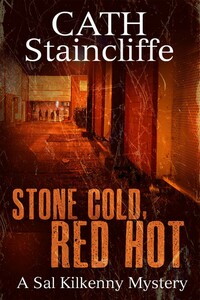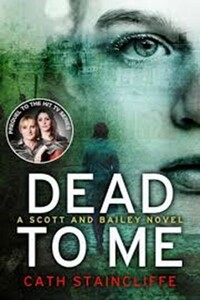Dead Wrong | страница 40
I smiled. ‘It shouldn’t take too long. Where does he work?’
I could see her trying to decide whether she should tell me. ‘Are you sure there’s nothing wrong?’ I pushed her.
‘No.’ She gave a little laugh, brittle. ‘Just he’s busy, you know.’ She gave up. ‘The Asian Cash and Carry on Upper Brook Street.’
‘Thank you.’
She was quiet as she saw me out. Muttered goodbye at the door. If the prosecution were going to use her as a witness she’d need plenty of coaching. I’d found her responses puzzling, veering from guilt to indignation.
Why was she so anxious about my intention to interview her husband? What was she so frightened of? Him? What he might say? What also intrigued me was that some of the seemingly innocuous questions about the evening itself had riled her as much as those about the murder and their inhumane response. Questions about why they were there, who’d driven and who they’d met. Now why would those upset her so?
It would be interesting to see if Rashid Siddiq was as defensive as his wife had been.
Chapter Ten
I’d no doubt that Mrs Siddiq would alert her husband to my interest, and the longer I left it the more time they would have to confer. I was 99 per cent sure that she’d been lying to me, but I still ran through other explanations for her manner; guilt at not reporting the attack, previous unpleasant dealings with the police, or maybe emotional problems that had nothing to do with the case itself. Had I just caught her on a bad day? She’d certainly been mercurial, her reactions running the gamut from hostility to anxiety.
The Cash and Carry was built with security in mind rather than any aesthetic consideration. It was a large metal cube in a compound of wire netting topped with savage barbed wire. Stanchions sported cameras and lights. The car park was almost full; traders were busy loading crates and drums into vans and cars.
I went in through the automatic doors and surveyed the warehouse. The huge space was divided into aisles by metal shelving which stretched up towards the ceiling. The place was illuminated by harsh strip lighting which gave everything a washed-out look. It smelt of damp cardboard. A sign pointed the way to an empty enquiries desk placed in front of two long prefabricated sections with frosted windows and doors which I took to be the offices.
I rang the bell on the counter and after a few moments a young man in a brown suit appeared from the nearest door. I asked for Mr Siddiq and passed over my card. He went back into the prefab and I watched his shadow disappear from view. When he returned he told me that Mr Siddiq was busy in a meeting. This I translated as: ‘Mr Siddiq is in and he’s told me to get rid of you.’




